Achieving healthy, sustainable weight loss isn’t just about counting calories or hours spent in the gym—it’s about nourishing your body with the right vitamins and minerals. You might have pondered why, even with your utmost efforts, weight loss can feel like a challenging task.
The answer often lies hidden in the details of your diet. Vitamins and minerals are powerful allies in regulating metabolism, managing cravings, and boosting your energy. But with so many myths surrounding supplements, it’s essential to understand how these nutrients truly support your weight-loss journey.
This guide gently clears the confusion, encouraging you to embrace nutrition as the foundation for lasting wellness. Remember, nourishing your body is an act of self-care, leading you to a healthier, happier you.
The Fundamentals of Weight Loss

Before exploring which vitamins and minerals support weight loss, it’s important to understand the basic principles that guide any successful journey. Weight loss isn’t just about willpower or quick fixes—it’s about creating balance in your body through intentional choices.
When you understand how your body uses energy, how nutrients fuel your cells, and how lifestyle habits impact your progress, everything starts to make more sense. Let’s begin with one of the most foundational concepts: caloric balance.
Caloric Balance: Intake vs Expenditure
Understanding caloric balance is like understanding your body’s energy bank. Every day, you deposit calories through food and withdraw calories through activity. Weight loss happens when you consistently withdraw more calories than you deposit.
But here’s the gentle truth: it doesn’t mean drastically cutting down food. It’s about choosing wholesome, nourishing foods that fuel your body effectively, helping you feel energized, satisfied, and capable of achieving lasting results.
- Intake: Calories you consume through food and drinks
- Expenditure: Calories your body burns through:
- Basal metabolic rate (BMR)—energy used at rest
- Physical activity—exercise, walking, daily movement
- Thermic effect of food—energy used for digestion
Lifestyle Factors: Exercise, Sleep, and Stress Management

Your weight-loss journey extends beyond nutrition alone; it beautifully intertwines with lifestyle factors like consistent exercise, restful sleep, and stress reduction. These aren’t just “nice to haves”—they’re foundational to your well-being.
Approaching them with warmth and self-compassion ensures you’re nurturing not just your body, but your mind and spirit too—ultimately making your progress both rewarding and sustainable.
Key lifestyle pillars to support your goals:
 Exercise—Boosts metabolism, preserves lean muscle, and enhances mood
Exercise—Boosts metabolism, preserves lean muscle, and enhances mood Sleep—Regulates hunger hormones and improves recovery
Sleep—Regulates hunger hormones and improves recovery Stress Management—Lowers cortisol, reducing emotional eating and fatigue
Stress Management—Lowers cortisol, reducing emotional eating and fatigue
Key Vitamins and Their Impact on Weight Management
While macronutrients such as protein and fiber often garner the most attention in weight-loss discussions, vitamins quietly contribute significantly in the background. These micronutrients help regulate metabolism, influence appetite, support energy levels, and even affect how your body stores fat.
When your body is low on key vitamins, you might feel sluggish, experience cravings, or struggle to see progress—despite your best efforts. Understanding how specific vitamins influence weight can help you make smarter, more supportive food choices on your journey to feeling your best.
B Vitamins
When it comes to metabolism and energy, B vitamins are your body’s silent powerhouses. Often grouped together as the “B Complex,” these eight water-soluble vitamins are deeply involved in how your body turns food into fuel—and how effectively that fuel is used.
Here’s a breakdown of the vitamins in the B family:
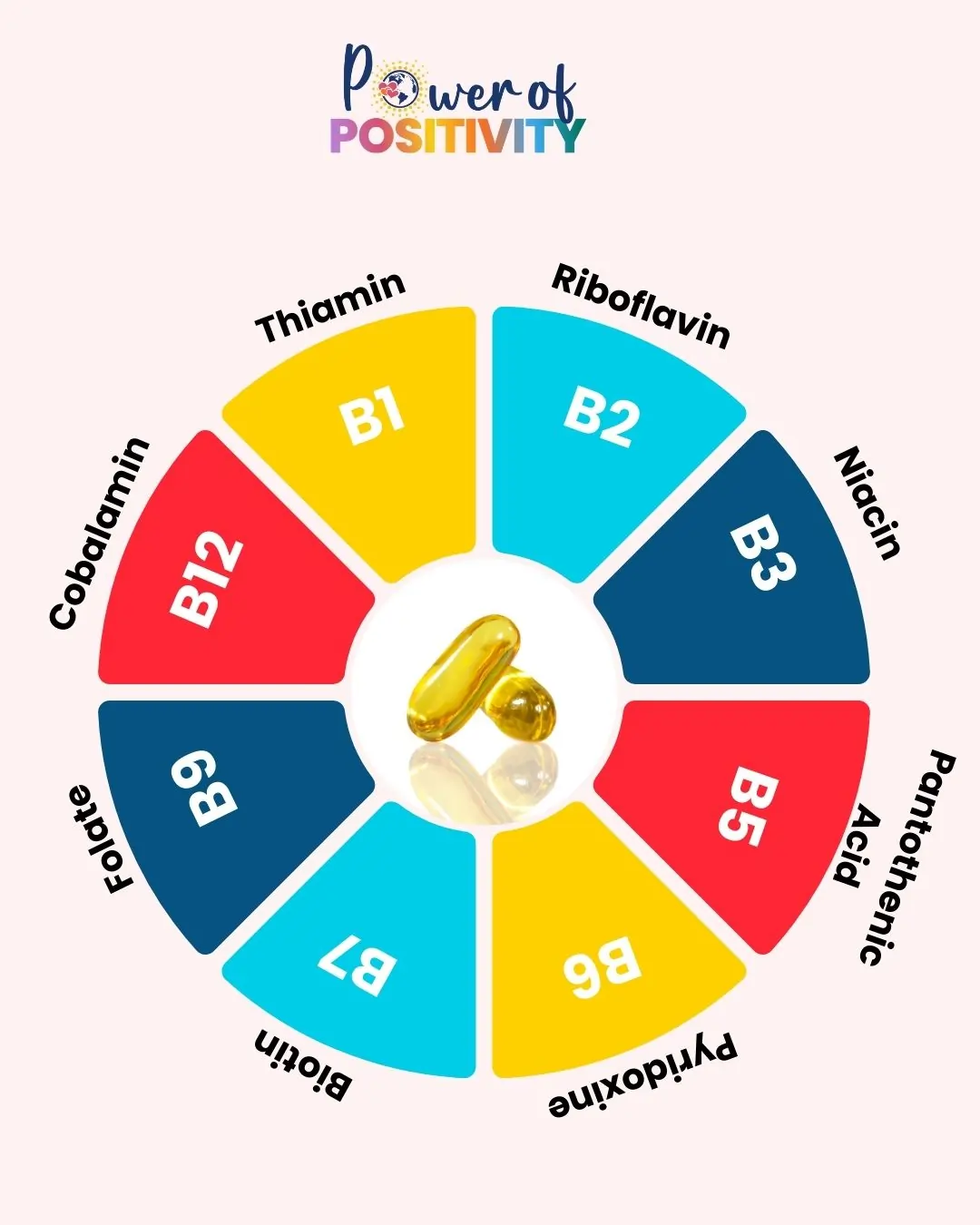
Though each B vitamin has a unique function, they often work together in harmony to support energy production, nervous system health, red blood cell formation, and hormone balance—all of which can influence your ability to lose weight and maintain overall well-being.
Metabolism and Energy Conversion
B vitamins help unlock energy from the foods you eat. They assist enzymes that break down carbohydrates, fats, and proteins into a usable form of fuel. Without enough B vitamins, your metabolism can become sluggish, making it harder to lose weight or stay energized throughout the day.
Several studies in animals have explored B vitamins’ effect on metabolism and fat gain—particularly in high-fat diets. However, many of these studies are limited by inconsistent dietary controls and aren’t directly transferable to human health. In other words, while the connection is interesting, we need more human-based research to draw strong conclusions.
Signs of B Vitamin Deficiency
When your body doesn’t get enough of one or more B vitamins, it can affect everything from your energy levels to your mood and even your ability to manage a healthy weight. Common symptoms of deficiency include:
- Persistent fatigue or weakness
- Brain fog and difficulty concentrating
- Mood swings or feelings of depression
- Hair thinning or skin irritation
- Digestive issues or loss of appetite
- Anemia (especially with low B12 or folate)
- Numbness or tingling in hands and feet (a sign of B12 deficiency)
People with restricted diets—like vegetarians or vegans—may be at higher risk for B12 deficiency, since it’s mainly found in animal-based foods. Similarly, high alcohol intake can impair B vitamin absorption and increase the risk of deficiency.
Where to Find B Vitamins Naturally
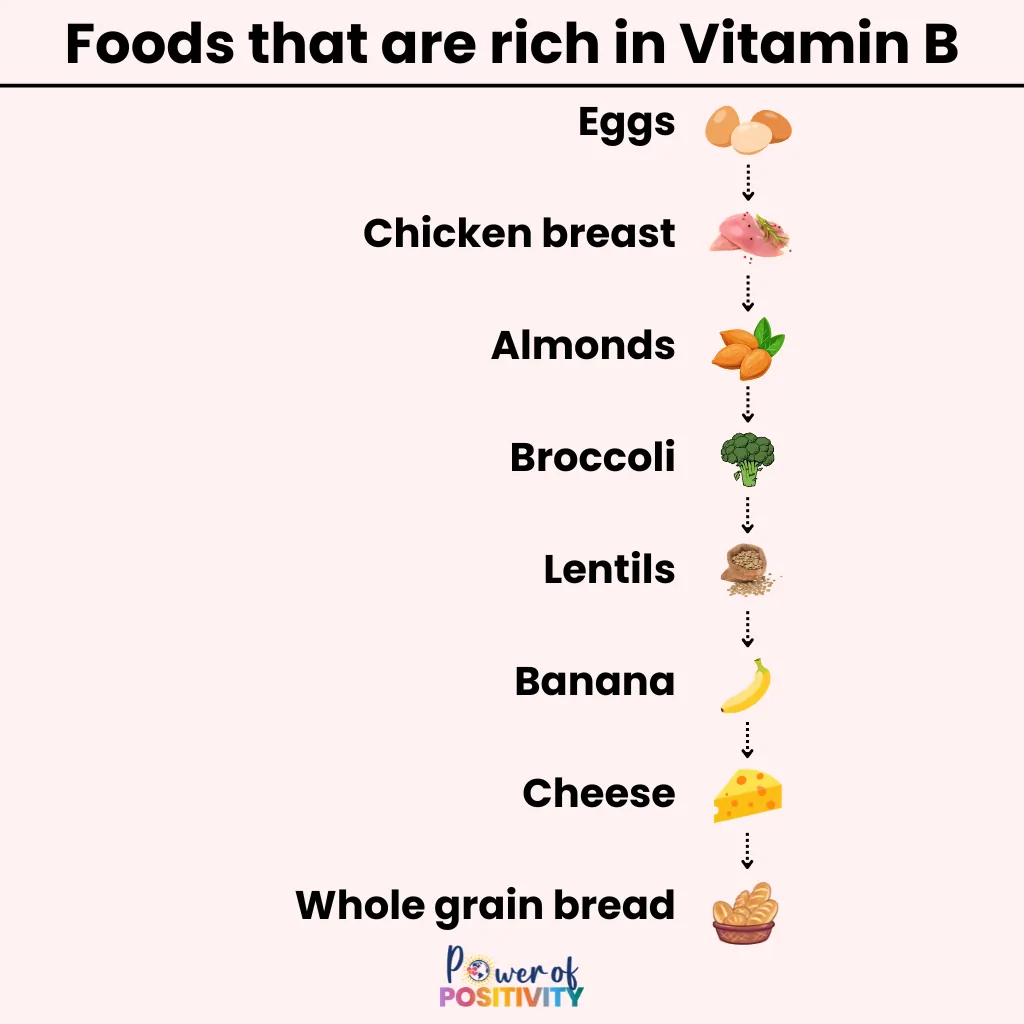
The best way to support your B vitamin intake is through a varied, whole-food diet. Because these vitamins aren’t stored long-term in the body, it’s important to include them regularly.
Foods rich in B vitamins include:
- Lean meats, poultry, and fish
- Eggs and dairy
- Beans and legumes
- Whole grains (like oats, quinoa, and brown rice)
- Leafy greens and cruciferous vegetables
- Nuts, seeds, and fortified cereals
If you follow a plant-based diet, consider a B12 supplement or fortified foods, especially if you’re feeling chronically tired or mentally foggy.
 The Bottom Line: B vitamins don’t directly burn fat, but they support the energy, metabolism, and hormonal balance your body needs to lose weight effectively—so focus on getting them through whole foods, and supplement only when truly needed.
The Bottom Line: B vitamins don’t directly burn fat, but they support the energy, metabolism, and hormonal balance your body needs to lose weight effectively—so focus on getting them through whole foods, and supplement only when truly needed.
Vitamin D

Often called the “sunshine vitamin,” vitamin D plays a far more powerful role in your weight-loss journey than most people realize.
While it’s best known for supporting bone health and immune function, research continues to show that vitamin D also influences how your body stores fat, regulates hormones, and manages energy—all of which are deeply connected to your metabolism.
Influence on Fat Storage and Hormonal Balance
Low vitamin D levels have been linked to increased body fat, especially in the belly area. One theory is that fat cells can “trap” vitamin D, making it less available for use throughout the body. Vitamin D is also involved in hormone regulation, including insulin sensitivity and cortisol balance. When these systems are off, it can lead to weight gain, fatigue, and cravings—especially for sugary foods.
Additionally, vitamin D may help reduce inflammation, a common issue in people struggling with weight. Chronic inflammation can interfere with metabolism and make weight loss more difficult.
Sunlight Exposure vs. Dietary Intake
Your body naturally produces vitamin D when your skin is exposed to sunlight. However, factors like limited sun exposure, sunscreen use, darker skin tones, or living in colder climates can reduce your body’s ability to synthesize enough vitamin D from sunlight alone.
That’s why getting vitamin D through food (and, if necessary, supplements) is essential—especially during fall and winter months or for people who spend most of their time indoors.
Signs of Vitamin D Deficiency
Vitamin D deficiency is surprisingly common and often goes unnoticed. Symptoms can be subtle but may include:
- Low energy or chronic fatigue
- Mood changes or feelings of depression
- Frequent illness or weakened immunity
- Muscle aches or joint pain
- Difficulty losing weight despite consistent effort
If these sound familiar, a simple blood test can determine if you’re deficient—and help guide your next steps.
Food Sources and Supplementation Tips
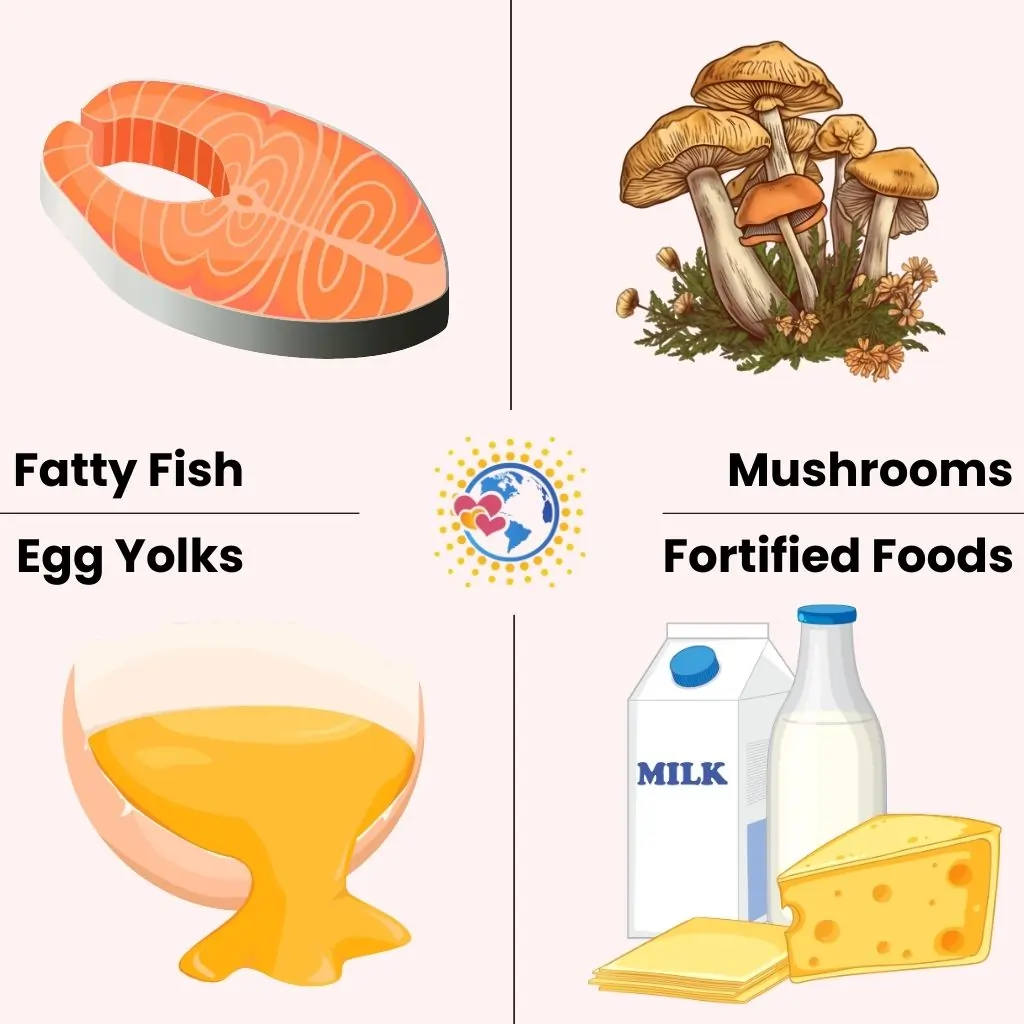
There are only a few natural food sources of vitamin D, so it’s important to be intentional about including them:
Vitamin D-rich foods include:
- Fatty fish (like salmon, sardines, or mackerel)
- Egg yolks
- Fortified foods (milk, orange juice, plant-based milks, and cereals)
- Mushrooms exposed to sunlight
For many people, food and sunlight alone may not be enough. If you’re low in vitamin D, your healthcare provider may recommend a supplement—usually D3, which is more easily absorbed.
 The Bottom Line: While vitamin D alone won’t cause fat loss, it supports your body’s ability to regulate hormones, reduce inflammation, and maintain metabolic balance—making it a powerful partner on your path to a healthier you.
The Bottom Line: While vitamin D alone won’t cause fat loss, it supports your body’s ability to regulate hormones, reduce inflammation, and maintain metabolic balance—making it a powerful partner on your path to a healthier you.
Vitamin C
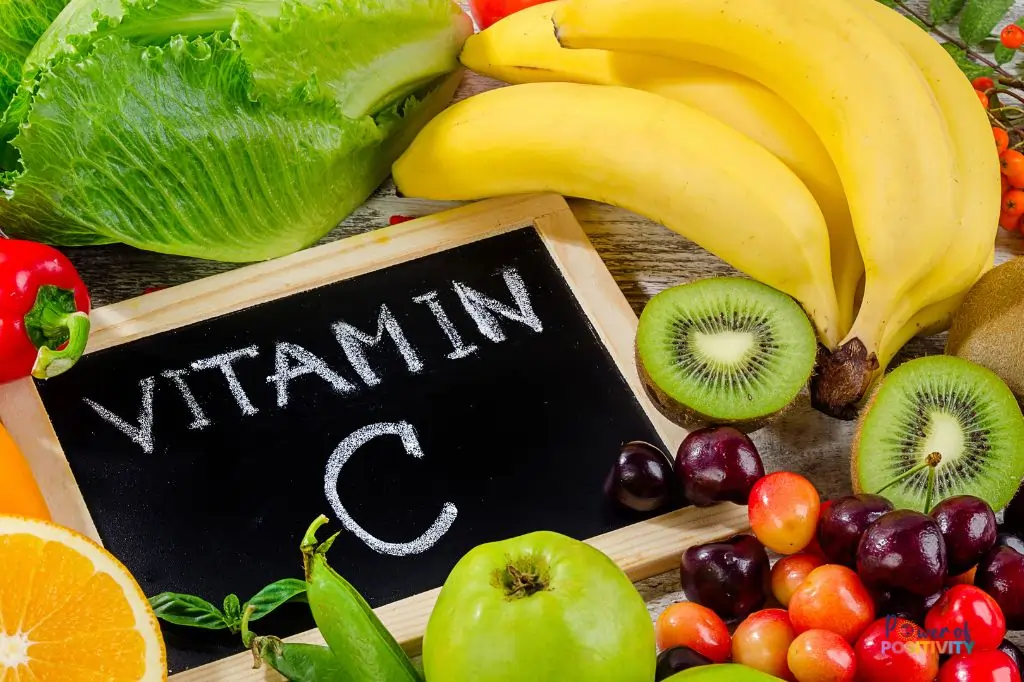
Vitamin C is best known for supporting your immune system, but it also plays an important role in weight management. This antioxidant-rich vitamin helps your body burn fat more efficiently—especially during exercise—and supports your adrenal glands, which regulate stress hormones like cortisol. Elevated cortisol levels, often caused by chronic stress, are linked to increased belly fat and slowed metabolism.
Vitamin C also helps reduce oxidative stress, supports iron absorption (important for energy), and may help curb cravings triggered by fatigue or mood swings. When your body is well-nourished and less stressed, it naturally becomes more efficient at managing weight.
Benefits of Vitamin C for Weight Loss and Wellness:
Vitamin C supports several subtle yet powerful processes in your body that can influence fat loss and overall wellness. When these systems work in harmony, your body feels more energized, resilient, and balanced.
- Supports fat oxidation during physical activity, boosting your exercise results
- Helps manage cortisol levels, reducing stress-related weight gain
- Enhances iron absorption, improving energy and stamina
- Reduces oxidative stress and inflammation in the body
- May help reduce cravings by supporting stable energy and mood levels
 Dietary Tip: Add fresh citrus, bell peppers, berries, or broccoli to your meals daily—vitamin C is best absorbed in whole-food form.
Dietary Tip: Add fresh citrus, bell peppers, berries, or broccoli to your meals daily—vitamin C is best absorbed in whole-food form.
Crucial Minerals in Weight Management
Just like vitamins, minerals are essential to your body’s ability to function, heal, and maintain a healthy weight. These often-overlooked nutrients help regulate everything from blood sugar levels to sleep quality and stress response—all of which directly impact your metabolism.
When you’re low in certain minerals, your body might struggle with energy production, hormone balance, or even hunger cues. And sometimes, despite eating well and staying active, your progress may stall simply because your body isn’t getting what it needs at a deeper, cellular level.
Let’s explore some of the most important minerals that can support your weight-loss journey—starting with one that plays a key role in both metabolism and relaxation: magnesium.
Magnesium
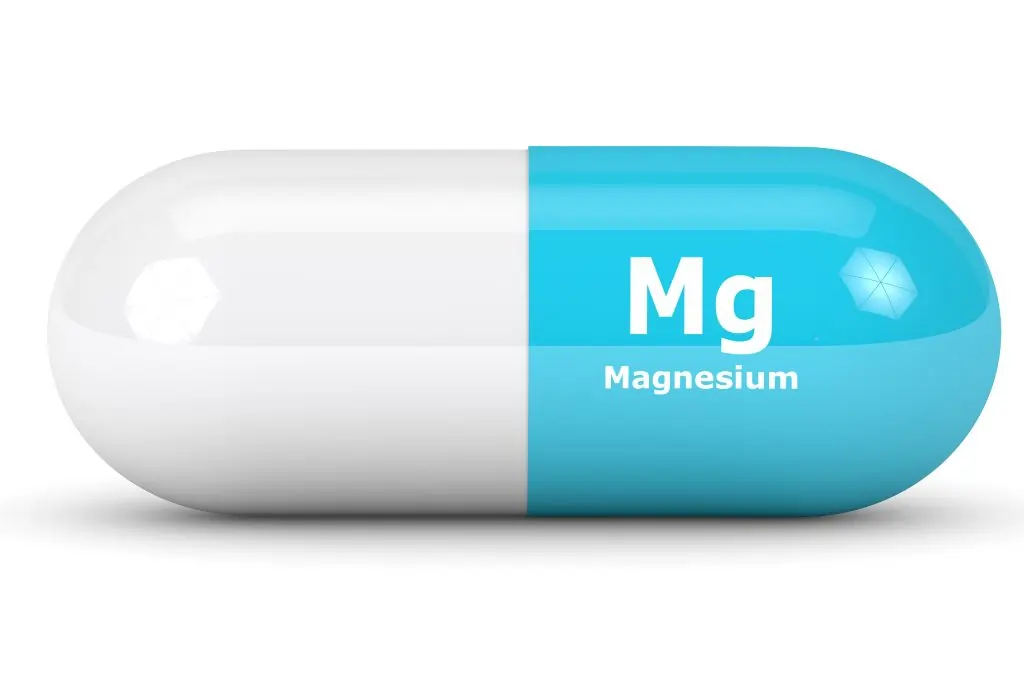
Magnesium, an underrated mineral in weight management, is crucial for over 300 biochemical processes in the body. Magnesium works in the background to create the conditions your body needs to release excess weight and feel balanced, from supporting steady energy levels to promoting better sleep and reducing stress.
Many people are unknowingly deficient in magnesium due to modern diets, high stress levels, and poor soil quality in crops. This deficiency can disrupt insulin sensitivity, increase inflammation, and even lead to emotional eating—all of which can interfere with your weight-loss goals.
- Regulates glucose and insulin levels, helping reduce blood sugar spikes and cravings
- Supports nervous system function, promoting calm and emotional balance
- Improves sleep quality, which is essential for hormone regulation and appetite control
- Aids in energy metabolism, helping your body use fuel more efficiently
- Reduces muscle tension and stress, decreasing cortisol and stress-related weight gain
 The Bottom Line: Include magnesium-rich foods like leafy greens, pumpkin seeds, almonds, black beans, and dark chocolate in your meals to help your body restore balance naturally.
The Bottom Line: Include magnesium-rich foods like leafy greens, pumpkin seeds, almonds, black beans, and dark chocolate in your meals to help your body restore balance naturally.
Iron
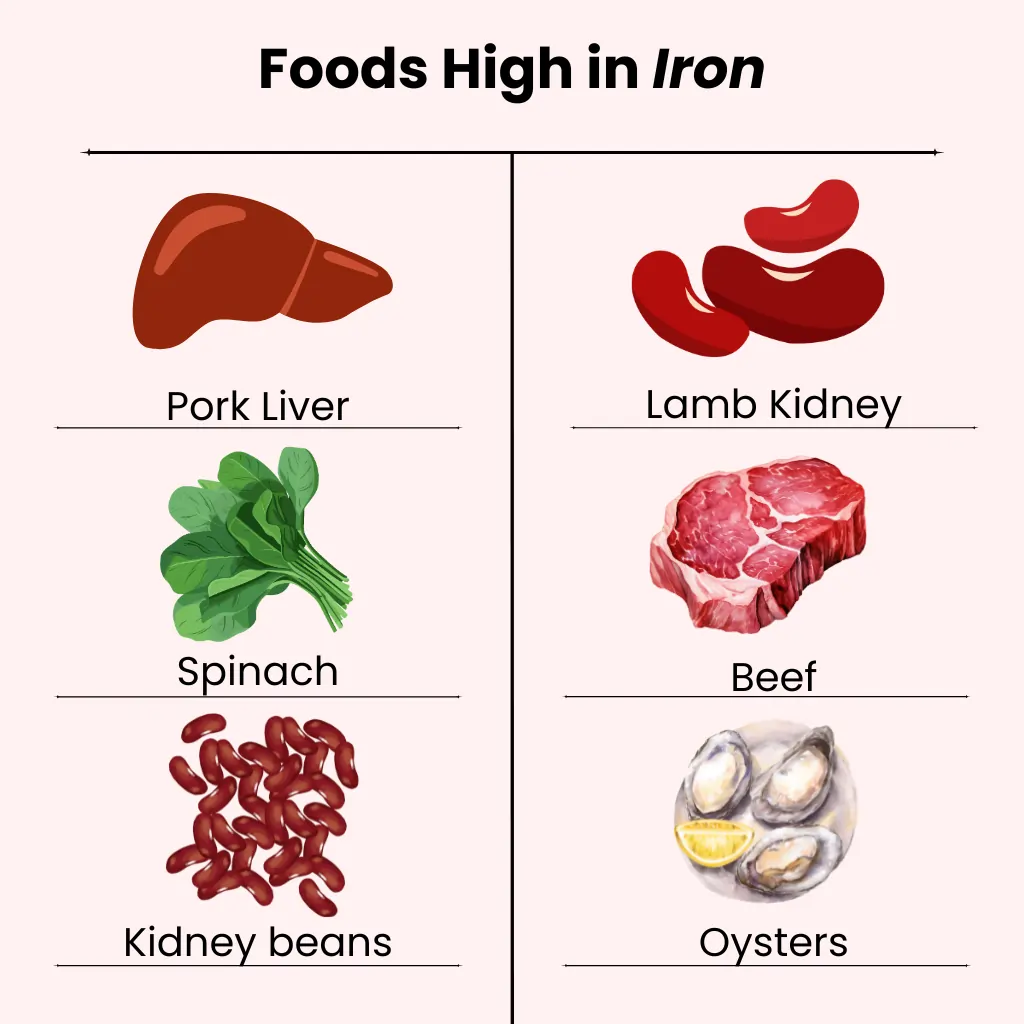
Why is iron important for weight loss?
Iron is essential for carrying oxygen to your cells, which your body needs to produce energy. Without it, your workouts may feel harder, your recovery slower, and your overall stamina drained. When your energy is low, motivation dips—and so does your metabolic efficiency.
How can I tell if I’m deficient in iron?
Signs include fatigue, weakness, pale skin, shortness of breath, and even difficulty concentrating. Iron deficiency is more common in women, especially during menstruation or pregnancy.
Where do I get my iron from?
There are two types:
- Heme iron—found in animal products like red meat, poultry, and fish. It’s easier for your body to absorb.
- Non-heme iron—found in plant-based foods like lentils, tofu, spinach, and fortified grains.
Pair non-heme sources with vitamin C-rich foods (like citrus or bell peppers) to enhance absorption.
 Pro tip: Avoid drinking coffee or tea with iron-rich meals, as they can inhibit absorption.
Pro tip: Avoid drinking coffee or tea with iron-rich meals, as they can inhibit absorption.
Calcium

Calcium is often associated with bone health, but it may also influence how your body stores and breaks down fat. Some studies suggest that calcium, especially from dairy sources, can help regulate fat metabolism by reducing the absorption of dietary fat and influencing how fat is stored in the body.
While research is still evolving, here’s what we know:
 Dairy sources—yogurt, milk, and cheese—may offer added metabolic benefits.
Dairy sources—yogurt, milk, and cheese—may offer added metabolic benefits. Non-dairy sources—fortified plant milks, leafy greens, chia seeds, and almonds.
Non-dairy sources—fortified plant milks, leafy greens, chia seeds, and almonds. Balance matters—too much calcium through supplements may interfere with other minerals and increase certain health risks.
Balance matters—too much calcium through supplements may interfere with other minerals and increase certain health risks.
If you’re not getting enough through your diet and your doctor suggests a supplement, choose a well-absorbed form like calcium citrate—and always take it with food.
Evaluating Weight Loss Supplements
Supplements are everywhere—promising to melt fat, curb cravings, or supercharge metabolism. But not all are created equal, and many fall short of their claims. Let’s take a closer look at what you really need to know.
Popular Supplements and What They Claim:
- Green Tea Extract—May boost metabolism and aid fat burning.
- Garcinia Cambogia—said to suppress appetite and reduce fat storage.
- CLA (Conjugated Linoleic Acid)—marketed to support fat loss and lean muscle.
- Glucomannan—A fiber that helps promote fullness.
- Raspberry Ketones—Believed to break down fat more effectively.
What the Science Says: Research on these supplements shows mixed to minimal results in real-world weight loss. Some may offer modest benefits, but none replace the power of nutrition, movement, and mindset.
Risks and Side Effects to Consider:
- Digestive discomfort (bloating, gas)
- Elevated heart rate (especially in caffeine-based supplements)
- Potential liver stress or damage
- Interference with medications
Understanding the Regulation Gap: In many countries, including the U.S., supplements aren’t tightly regulated. That means you can’t always trust what’s on the label. Stick to brands with third-party testing and always consult your doctor—especially if you have underlying health conditions.
 Takeaway: Supplements may support your journey—but they’re not magic. Focus first on whole foods, movement, sleep, and self-care. That’s where real transformation begins.
Takeaway: Supplements may support your journey—but they’re not magic. Focus first on whole foods, movement, sleep, and self-care. That’s where real transformation begins.
Whole Foods vs Supplements: Optimal Nutrient Acquisition
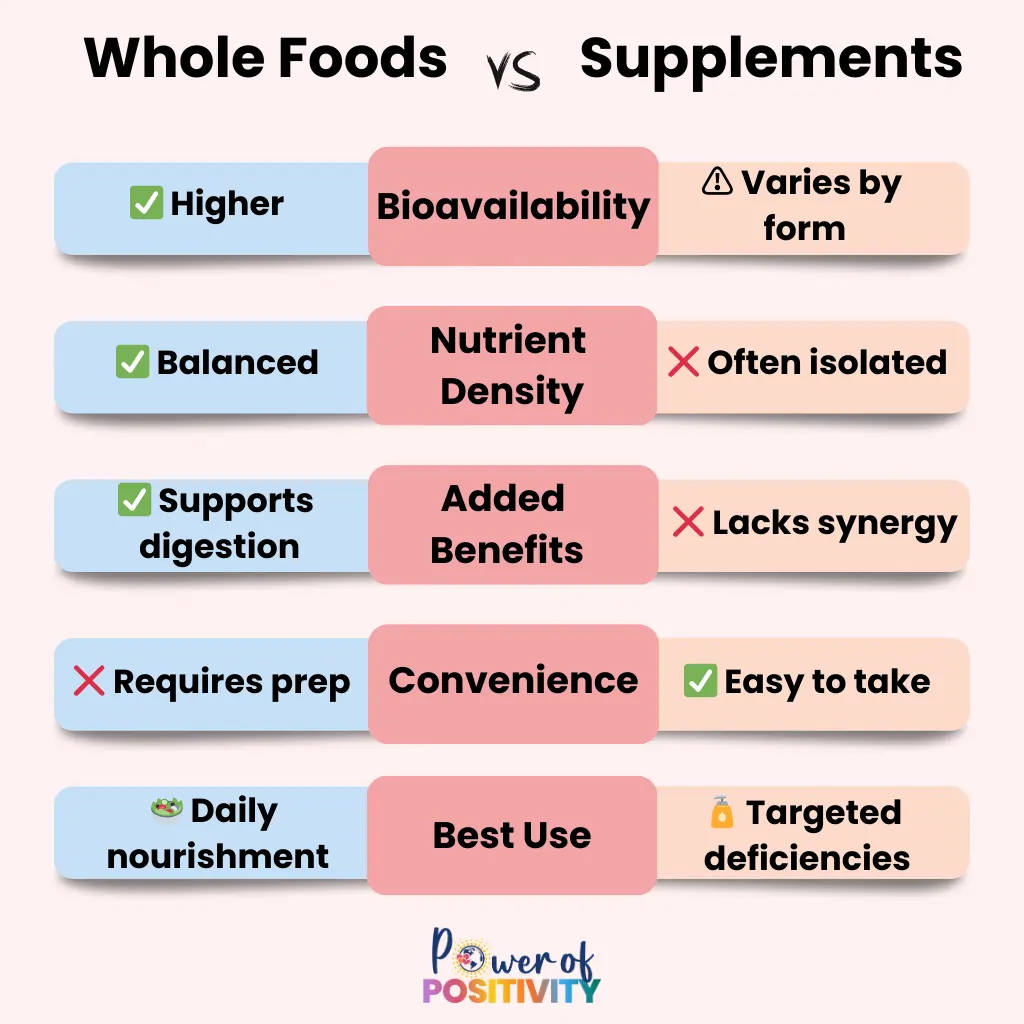
In today’s fast-paced world, it’s tempting to look for a quick fix in a bottle. However, when it comes to nourishing your body, whole foods remain the preferred choice. They offer not only vitamins and minerals but also fiber, antioxidants, and plant compounds that work together in ways supplements simply can’t replicate.
That said, supplements can play a helpful role—especially if you have dietary restrictions, health conditions, or confirmed deficiencies. The key is knowing when and why to use them, without relying on them as a replacement for real food.
Why Whole Foods Come First
 Nutrients in whole foods are more bioavailable and balanced
Nutrients in whole foods are more bioavailable and balanced They offer synergistic compounds that boost absorption and effectiveness
They offer synergistic compounds that boost absorption and effectiveness Naturally contain fiber and antioxidants that support digestion and immune health
Naturally contain fiber and antioxidants that support digestion and immune health
When Supplements Make Sense
 To correct a diagnosed deficiency (like low iron, B12, or vitamin D)
To correct a diagnosed deficiency (like low iron, B12, or vitamin D) If you follow a restricted diet (vegan, dairy-free, gluten-free, etc.)
If you follow a restricted diet (vegan, dairy-free, gluten-free, etc.) During certain life stages or health conditions that increase nutrient needs
During certain life stages or health conditions that increase nutrient needs
Frequently Asked Questions
Can taking vitamin B12 supplements aid in weight loss?
Vitamin B12 is essential for energy production and neurological function. However, no substantial evidence supports its direct role in promoting weight loss. Maintaining adequate B12 levels supports overall health, but supplementation should be based on individual needs and dietary intake.
Are there any risks associated with using green tea extract for weight loss?
Green tea extract is popular for its potential to boost metabolism. While generally safe for most people, excessive consumption may lead to side effects such as insomnia, dizziness, or gastrointestinal discomfort due to its caffeine content. It’s advisable to consult a healthcare provider before starting any new supplement regimen.
How does iron deficiency impact weight loss efforts?
Iron plays a crucial role in oxygen transport and energy metabolism. An iron deficiency can lead to fatigue and decreased physical performance, potentially hindering weight loss efforts. Ensuring adequate iron intake through diet or supplements can support overall energy levels and exercise capacity.
Is there a connection between vitamin D levels and body weight?
Some studies suggest a correlation between low vitamin D levels and increased body weight, though the relationship isn’t fully understood. While supplementing with vitamin D may not directly cause weight loss, maintaining sufficient levels supports overall health and may assist in weight management strategies.
Can excessive intake of certain vitamins hinder weight loss?
Yes, consuming vitamins in amounts exceeding recommended levels can lead to adverse effects. For instance, too much vitamin A can cause liver damage, while excessive vitamin E intake may increase the risk of stroke. It’s essential to adhere to recommended dosages and consult with a healthcare professional before taking high-dose supplements.
Nourish to Flourish
Vitamins and minerals won’t do the heavy lifting for you—but they will help your body work smarter, not harder. From metabolism to mood, these tiny nutrients make a big impact on weight management.
Whole foods should be your go-to, with supplements stepping in only when needed. Combine nutrient-rich eating with movement, sleep, and self-love—and you’re building a body that feels as good as it looks.
Forget fads. Forget extremes.
Fuel up, feel strong, and glow on. 

Your healthiest weight isn’t about less—it’s about more of what truly nourishes you.
The post Vitamins & Minerals for Weight Loss: Everything You Need to Know appeared first on Power of Positivity: Positive Thinking & Attitude.





 Exercise—Boosts metabolism, preserves lean muscle, and enhances mood
Exercise—Boosts metabolism, preserves lean muscle, and enhances mood Sleep—Regulates hunger hormones and improves recovery
Sleep—Regulates hunger hormones and improves recovery Stress Management—Lowers cortisol, reducing emotional eating and fatigue
Stress Management—Lowers cortisol, reducing emotional eating and fatigue Dairy sources—yogurt, milk, and cheese—may offer added metabolic benefits.
Dairy sources—yogurt, milk, and cheese—may offer added metabolic benefits. Non-dairy sources—fortified plant milks, leafy greens, chia seeds, and almonds.
Non-dairy sources—fortified plant milks, leafy greens, chia seeds, and almonds. Balance matters—too much calcium through supplements may interfere with other minerals and increase certain health risks.
Balance matters—too much calcium through supplements may interfere with other minerals and increase certain health risks.
 Nutrients in whole foods are more bioavailable and balanced
Nutrients in whole foods are more bioavailable and balanced They offer synergistic compounds that boost absorption and effectiveness
They offer synergistic compounds that boost absorption and effectiveness To correct a diagnosed deficiency (like low iron, B12, or vitamin D)
To correct a diagnosed deficiency (like low iron, B12, or vitamin D) During certain life stages or health conditions that increase nutrient needs
During certain life stages or health conditions that increase nutrient needs